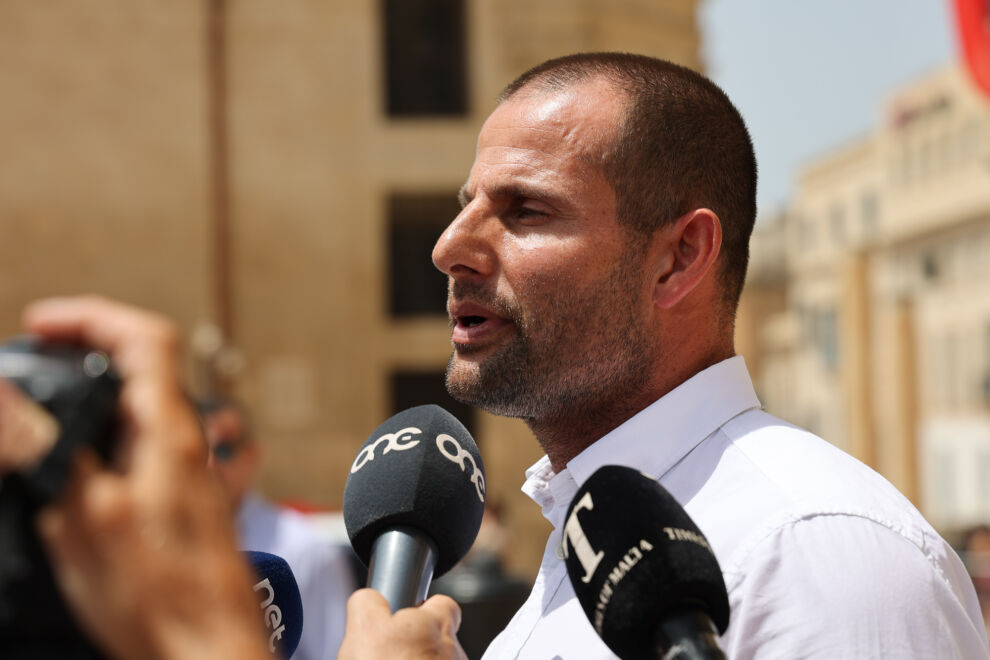Adds reply from Department of Information
Tourism minister Konrad Mizzi has dismissed a leaked financial intelligence report that reportedly contains damning evidence of his “illegal activity” as a “coordinated smear campaign by Nationalist Party bloggers and sympathisers in the press.”
His stance is, to put it mildly, amusing given that he is at the helm of a party which not only owns a newspaper and TV and radio stations but also controls public broadcasting and enjoys the support of self-proclaimed independent media houses such as the General Workers Union’s newspapers.
Mizzi’s attempt to portray himself as some kind of hounded man has echoes of media mogul and former Italian premier Silvio Berlusconi’s crocodile tears over what he describes as a persecution by communist journalists.
One aspect of journalist Daphne Caruana Galizia’s murder which has been overlooked is the state of the media in Malta.
Maltese people often dismiss international criticism as some sort of intrusion or misplaced interference. However, foreign journalists, analysts and politicians have the advantage of viewing things from afar free from the shackles of Malta’s political tribalism.
In the wake of Caruana Galizia’s murder the heads of eight of the world’s largest news organisations called on the European commission to investigate the murder and the independence of the media in Malta.
The signatories which include editors of the Guardian, the New York Times, Le Monde, BBC, Süddeutsche Zeitung, the Financial Times, La Repubblica and El País raised concerns about the lack of political independence of the media in Malta and that it was the “only EU country that has such extensive media ownership by the political parties”.
“Daphne’s murder, combined with the structural issues the commission identified, demonstrate the need for a full investigation into the state of media independence in Malta by the commission,” the editors said.
Unfortunately the European Commission cannot do much as there are no binding measures obliging Member States to take action against media concentration.
Change can only come from within, but once again the complete occupation of the State by the two major political parties continues to immobilise the country and all ‘independent’ institutions.
The Institute of Maltese Journalists (IGM) is the body best placed to reform the media in Malta, however the institute is dominated by the major political parties and their acolytes.
Despite calls for unity and for greater protection of journalists following Caruana Galizia’s murder, the proposed reforms in the draft media law fall well short of the changes needed to ensure real independence and press freedom.
The greatest problem facing the media in Malta is the politicisation of the press, with both major parties directly and indirectly controlling the vast majority of media houses.
Parties will not give up this control easily (and only they can decide to at least close down their TV stations) but there is hardly any pressure from the IGM and civil society to curb the extensive media ownership by the political parties.
The same can be said of the independence of the state broadcaster. PBS is entirely controlled by the party in government and more than a social service, the national broadcaster serves as a gatekeeper and a financial life jacket for loyalists and mercenaries.
Curbing political party media ownership and their control over the state broadcaster are imperative to safeguard media freedom, as is the need to have an independent regulatory body for journalists.
For instance, in Malta press cards are issued by government through the Department of Information, meaning that government decides who can and cannot cover official events and act as a ‘recognised’ journalist.
Press freedom should be characterised by ideological, cultural, social and political pluralism but this can never happen under party and State control.
Department of Information replies
I refer to Jurgen Balzan’s article on The Shift News, “No party, no media”, dated 18 February 2018.
I must admit that the reference made by Mr. Jurgen Balzan to the Department of Information, and to the issue of press cards, came as a very big surprise. Mr. Balzan has been doing the rounds for quite some time now, and I thought he knew that the Department of Information never ever had the remit to give or deny recognition to journalists.
Three very basic facts.
- Press Cards (the name can be a misnomer) are but passes which are valid only for Government events.
- They are invariably issued if the registered Editor and/or Head of News of a particular media organization endorses the application for a press card. This means that it is the Editor and NOT the Department of Information that verifies the authenticity of the applicant.
- The Department ALWAYS takes the Editor/Head of News at his/her word.












